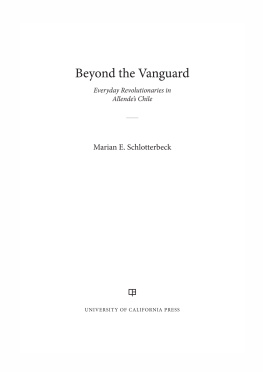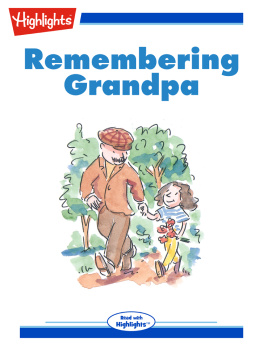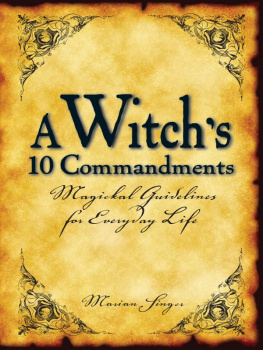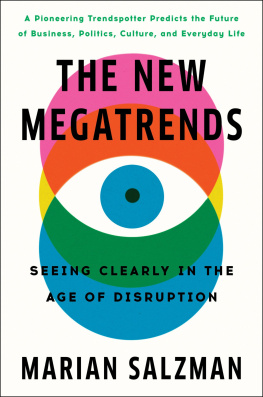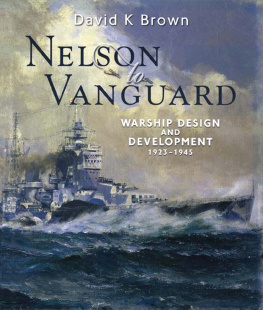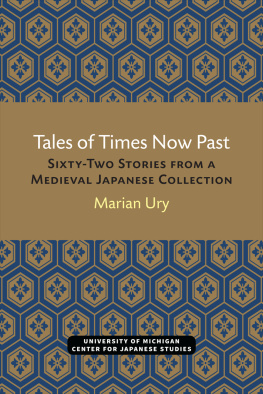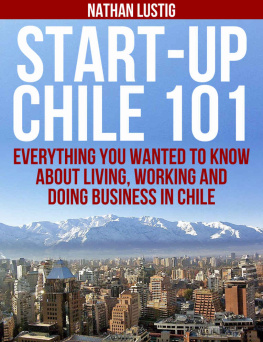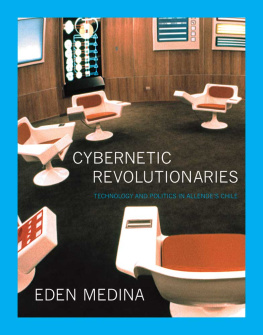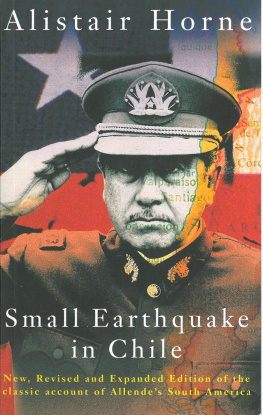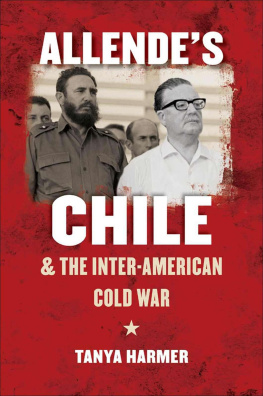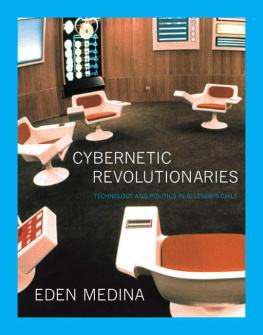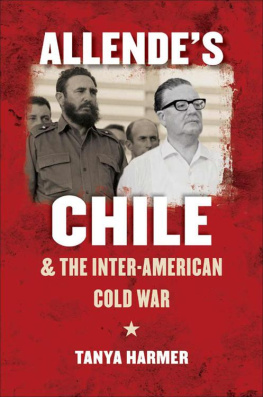Marian E. Schlotterbeck - Beyond the vanguard: everyday revolutionaries in Allendes Chile
Here you can read online Marian E. Schlotterbeck - Beyond the vanguard: everyday revolutionaries in Allendes Chile full text of the book (entire story) in english for free. Download pdf and epub, get meaning, cover and reviews about this ebook. City: Chile;Chili, year: 2018, publisher: University of California Press, genre: Politics. Description of the work, (preface) as well as reviews are available. Best literature library LitArk.com created for fans of good reading and offers a wide selection of genres:
Romance novel
Science fiction
Adventure
Detective
Science
History
Home and family
Prose
Art
Politics
Computer
Non-fiction
Religion
Business
Children
Humor
Choose a favorite category and find really read worthwhile books. Enjoy immersion in the world of imagination, feel the emotions of the characters or learn something new for yourself, make an fascinating discovery.
- Book:Beyond the vanguard: everyday revolutionaries in Allendes Chile
- Author:
- Publisher:University of California Press
- Genre:
- Year:2018
- City:Chile;Chili
- Rating:5 / 5
- Favourites:Add to favourites
- Your mark:
- 100
- 1
- 2
- 3
- 4
- 5
Beyond the vanguard: everyday revolutionaries in Allendes Chile: summary, description and annotation
We offer to read an annotation, description, summary or preface (depends on what the author of the book "Beyond the vanguard: everyday revolutionaries in Allendes Chile" wrote himself). If you haven't found the necessary information about the book — write in the comments, we will try to find it.
Beyond the vanguard: everyday revolutionaries in Allendes Chile — read online for free the complete book (whole text) full work
Below is the text of the book, divided by pages. System saving the place of the last page read, allows you to conveniently read the book "Beyond the vanguard: everyday revolutionaries in Allendes Chile" online for free, without having to search again every time where you left off. Put a bookmark, and you can go to the page where you finished reading at any time.
Font size:
Interval:
Bookmark:

Marian E. Schlotterbeck

UNIVERSITY OF CALIFORNIA PRESS
University of California Press, one of the most distinguished university presses in the United States, enriches lives around the world by advancing scholarship in the humanities, social sciences, and natural sciences. Its activities are supported by the UC Press Foundation and by philanthropic contributions from individuals and institutions. For more information, visit www.ucpress.edu.
University of California Press
Oakland, California
2018 by Marian Schlotterbeck
Parts of the introduction and epilogue of the present work appeared in a slightly different version in Chile: Reflecting on the Revolutionary Left, Berkeley Review of Latin American Studies (Fall 2015): 2831. Reprinted courtesy of the editors.
Library of Congress Cataloging-in-Publication Data
Names: Schlotterbeck, Marian, author.
Title: Beyond the vanguard : everyday revolutionaries in Allendes Chile / Marian E. Schlotterbeck.
Description: Oakland, California : University of California Press, [2018] | Includes bibliographical references and index. |
Identifiers: LCCN 2017053913 (print) | LCCN 2017057577 (ebook) | ISBN 9780520970175 (E-book) | ISBN 9780520298057 (cloth : alk. paper) | ISBN 9780520298064 (pbk. : alk. paper)
Subjects: LCSH : Working classPolitical activityChileHistory20th century. | ChilePolitics and government19701973.
Classification: LCC HD 8298 (ebook) | LCC HD 8298 . S 35 2018 (print) | DDC 983.06/46dc23
LC record available at https://lccn.loc.gov/2017053913
Manufactured in the United States of America
26 25 24 23 22 21 20 19 18
10 9 8 7 6 5 4 3 2 1
For my parents, John and Barbara
Over the past decade, I have had exceptional interlocutors and mentors who transformed the inherently solitary activities of intellectual inquiry and historical research into collaborative endeavors.
The seeds for this project began at Oberlin College, on September 10, 2001, my first day of class. The aftermath of 9/11 and the antiIraq war movement informed my generation of Oberlin students engagement with the meaning of U.S. power in the world. In this search, I was fortunate to find a lifelong mentor in Steve Volk. As a graduate student in the early 1970s, he lived in Chile during Allendes presidency and the September 11, 1973, military coup. His willingness to bring personal experiences into the classroom brought that history to life. In 2003, he organized a weeklong seminar around the thirtieth anniversary of the Chilean coup. Instead of the anticipated dozen Latin American studies majors, nearly two hundred students attended. My experience in that seminar encapsulates so much of what made Oberlin a stimulating and generous intellectual community. I can only hope to one day be as dedicated a mentor and as innovative a teacher as Steve. At the 2003 seminar, I also met Peter Kornbluh from the National Security Archive in Washington, DC. Working as Peters assistant on the Chile and Cuba Documentation Projects challenged me to engage U.S. accountability, to make headlines out of history, and to write for wider audiences. My relatives Chris and Nick Scanniello graciously opened their home, allowing me to take an internship at the National Security Archive.
At Yale University, Gil Joseph models compassionate mentorship of graduate students. I am grateful for his unwavering support throughout this project. During an early phase of research in Chile, as I mulled over possible case studies, Gil had simple advice: write a history that people will want to read. His keen sensibility for finding the stories that are worth telling has always been a good standard to follow. Each of my dissertation committee members contributed to this projects development. Peter Winn from Tufts University graciously agreed to serve as an outside reader, and I benefited immensely from his vast knowledge of Chilean history and his attention to detail. At critical junctures during my sixteen months of research in 2010 and 2011, Peter and I fortuitously overlapped in Santiago. Each conversation sharpened my analysis and gave new direction to remaining research. His long-standing ties to Chile are an inspiration that I can only hope to emulate. As a scholar, teacher, and mentor, Lillian Guerra embodies bold critical thinking and inspires the questioning of conventional interpretations. Michael Dennings insights drawn from leftist political cultures and social movements enhanced this projects analytical frame. During graduate school, I also benefited from conversations and courses with Stuart Schwartz, Seth Fein, Moira Fradinger, and Patricia Pessar.
My Yale peers, all generous and energetic thinkers, include Lisa Ubelaker Andrade, Jenny Lambe, Ingrid Castaeda, Erika Helgen, Mike Bustamante, Christine Mathias, Drew Konove, Carmen Kordick, Kirsten Weld, Louise Walker, Lisa Covert, and Andra Chastain. From the moment I saw him on a cold spring day in a Berkeley hoodie outside the Yale Hall of Graduate Studies, I knew Fredy Gonzlez and I would become fast friends. Through many ups and downs, multiple time zones, and bad internet connections, Fredy has always been there to offer encouragement. During my first summer of graduate school, Alison Bruey showed me the ropes of archival research in Santiago and since then has been an exceptional interlocutor. Her generosity in helping a new generation of Chileanists navigate the field knows no bounds. In New Haven and New York, I am indebted to the friendship of Matthew Vernon, Suzy Newbury, Allison Gorsuch, Aaron Wenzloff, Ariel Duncan, and Carmen Solz.
Sponsored by Rotarians in Greencastle, Indiana, I first lived in Chile in 2006 as a Rotary Ambassadorial Scholar at the Universidad de Concepcin, where Alejandra Brito Pea introduced me to Chilean social history and Jaime Fierro Carrasco pushed me to think critically about citizenship and democracy. The friendships formed that year have endured several long absences and many joyful reunions: to Pamela Santa Cruz, Margarita Martnez, Carolina Landaida, Bernardita Roa, Karina Seplveda, and Paulina Arancibia las chicas de siempre ms Antoine Caullet mil gracias por las amistades y convivencias. Starting with an impromptu conversation about Subaltern Studies, it has been gratifying to embark on an academic career in the company of Ral Rodrguez Freire. Over the years several Chilean families have welcomed me into their homes; a special thank-you to the Paillacar Mtizabal family in Osorno, the Espinoza Goecke family in Santiago, and the Monsalves Urrea family in San Pedro and Coronel. Betweem 2010 and 2011, Julia Brown-Bernstein, Josefina de la Maza, Fernando Garrido, Susana Costamagna, Claudio Barrientos, Sebastin Acua, Andrs Estefane, and Valentina Orellana in Santiago and Gina Inostroza, Anbal Navarette, Darwin Rodrguez, and Alejandra Ruz in Concepcin provided friendship and good cheer. The years I lived in Chile, 2006 and 201011, coincided with resurgent student protest. The exhilaration of watching these movements unfold, joining marches, sitting in on assemblies, and debating their meaning with everyday Chileans has informed my thinking about movement politics and Chilean history.
The courage and optimism of the many Chileans I interviewed continues to inspire me. I hope in this book they will recognize their many contributions. Miguel Soto in Concepcin, Darwin Rodrguez and Juan Reyes in Tom, and Hugo Monsalves in San Pedro went to great lengths to facilitate many of these interviews. In addition, Jody Pavilack, Sebastin Leiva, and Eugenia Palieraki generously shared their interviews and research materials with me. Chilean research assistants Antonia Garcs, Paulina Bravo, and Alejandra Torres, all talented young historians, accompanied me for many hours in the Hemeroteca of the Biblioteca Nacional in Santiago, and Mariel Ruiz Muoz, Gina Inostroza, and Marco Contreras carried out additional interviews in Concepcin and Talcahuano. The efficiency of transcribers Katherine Cceres, Colomba Orrego, Fabin Rodrguez, and Julio and Ursula Juregui enabled me to provide interviewees with copies of our conversations and to begin writing from hundreds of pages of interviews. I am deeply grateful for the professionalism of the archivists and librarians in Santiago and Concepcin who facilitated access to materials at the Biblioteca Nacional, the Archivo Oral de Villa Grimaldi, the Archivos Judiciales de Concepcin, the Archivos Generales, Biblioteca Central Luis David Cruz Ocampo, and Centro de Estudios Regionales at the Universidad de Concepcin, and the now-defunct NGO Servicios de Estudios Regionales. Anbal Navarrete allowed me to consult the Bellavista-Tom textile union minutes. I am indebted to Armindo Cardoso for documenting this history and allowing me to use his photograph on the cover.
Font size:
Interval:
Bookmark:
Similar books «Beyond the vanguard: everyday revolutionaries in Allendes Chile»
Look at similar books to Beyond the vanguard: everyday revolutionaries in Allendes Chile. We have selected literature similar in name and meaning in the hope of providing readers with more options to find new, interesting, not yet read works.
Discussion, reviews of the book Beyond the vanguard: everyday revolutionaries in Allendes Chile and just readers' own opinions. Leave your comments, write what you think about the work, its meaning or the main characters. Specify what exactly you liked and what you didn't like, and why you think so.

